R U OK?
September 10, 2020Sometimes.
Sometimes this is just the right question to ask. Sometimes it is not helpful at all. Commonly known as a ‘closed question,’ the choice of response is very narrow: ‘yes,’ ‘no,’ or something equivalent, can be a roadblock to further conversation.
Do I feel ok? If I’m feeling fine, yes is an easy answer, though I may wonder why you would need to ask me that. Maybe I’m unconsciously giving out signals that are of concern to you. I may recognize or interpret your question simply as the ‘social noise’ that is often part of a casual greeting and respond accordingly. If I’m feeling sad, angry, depressed or upset, I may have one of several responses. I may feel immensely relieved that you have noticed. Now I feel free to talk.
 On the other hand, if I don’t want to reveal to you or anyone what is going on inside me, the question backs me into a corner. I may deny that anything’s wrong. It’s possible I don’t know myself what is going on and have no words to describe it. Even if I do, I won’t necessarily want to talk yet, talk at all, or talk to you. Please stay open to the possibility that I may initiate conversation with you at another time or seek out someone else.
On the other hand, if I don’t want to reveal to you or anyone what is going on inside me, the question backs me into a corner. I may deny that anything’s wrong. It’s possible I don’t know myself what is going on and have no words to describe it. Even if I do, I won’t necessarily want to talk yet, talk at all, or talk to you. Please stay open to the possibility that I may initiate conversation with you at another time or seek out someone else.
Relationship plays a big part in all this. It’s good to consider whether you are the right person to initiate a conversation if you see someone struggling. I may not wish to be in a vulnerable position with you, especially if you can affect my life significantly, for example, my job or reputation. Whether you are family, friend or colleague, do make sure you remain supportive, genuinely caring and non-judgmental in your attitude. Let go of the illusion that you can fix another person’s problems, while not underestimating the power of your compassion and goodwill to make a difference, even if your efforts are not perfect.
At this time in our lives, trauma after trauma is building upon struggles already present in our lives. Drought, floods, fires and COVID-19 make up a very strong cocktail of pain and suffering, on top of pre-existing events, circumstances, health and vulnerabilities. It can all become too big. There may come a time when it is essential for me to seek help and essential for you to act on what you notice for the sake of my wellbeing and maybe my very life. You yourself may need advice from a professional on how to handle this situation. A trusted GP or counsellor can be a good place to start for both you and me.
September is National Suicide Prevention Month. Suicide can be a tragic last resort for someone desperately depressed or hopeless. Beyond Blue is a helpful website for reliable information and assistance.
May your perspective be larger than the view from the foothills.
When the way is flat and dull in times of grey endurance,
May your imagination continue to evoke horizons.
Catherine Shelton rsj
Reflection on Mary MacKillop
September 8, 2020Samela Harris, journalist, has described Mary MacKillop from the secular point of view that her father Max Harris expressed. Her strong character images of St Mary MacKillop depict, very poignantly, a saintliness, that describes her as a strong woman whom we can imagine in today’s world.
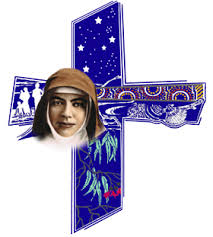
The moment he (Max Harris) came up with that phrase (‘A Saint for all Australians’) he knew it was right and he said so. It was a simple phrase defining Mary’s egalitarian outreach which transcended the ecumenical and embraced all – from the barefooted child and the fallen woman to gentry and ecclesiastical dignitary. Max shared some of those ‘everyman’ qualities with Mary – being one of those people who connected with everybody, and who judged people not by who or what they were but by what qualities of intellect and compassion they demonstrated.
When people read of his passion for the recognition and advancement of Mary MacKillop, it was not a religious issue they perceived but the tale of an extraordinary woman whose life stood aloft. A life of exceptional merit. His love for “A Saint for All Australians” was quick to attract the attention of the Josephites.”
Max tells us Mary was” inspirational, exceptional, courageous, a woman of integrity and altruism. She was a brave feminist who stood up for what she believed, who defied an oppressive patriarchy with determination and humility. He wrote with heartfelt conviction, but also with intellectual potency and objectivity which were hallmarks of his character
And Max kept on writing about Mary, thinking about Mary, loving Mary – and delivering a steady education to the Australian public through the 1970s, 80s and 90s.
In so doing, he quietly joined the small ranks of the lay people who also had championed and helped Mary MacKillop a century before. They were an Adelaide immigrant Jew called Emanuel Solomon and a Presbyterian society queen called Joanna Barr Smith – both unlikely supporters of a young nun. But it was her social activism in the streets of Adelaide, her courage, her altruism, which inspired that support and friendship. And Max kept on writing about Mary, thinking about Mary, loving Mary – and delivering a steady education to the Australian public through the 1970s, 80s and 90s.
Samela Harris – A Love Story between Mary and Max, 10 October, 2010. ABC Religion and Ethics.
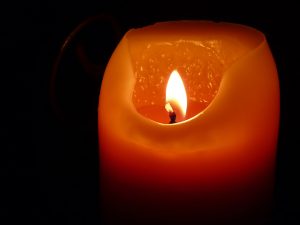 Let us reflect…
Let us reflect…
- What saintly qualities appeal to you from descriptions of Max Harris?
- What characteristics from this account of Mary’s stance for good really inspires you?
- Imagine the absolute courage Mary exhibited in her quest for justice.
Let us with Mary MacKillop pray for an extra measure of strength as we cope with the everyday happenings of life.
Michele Shipperley rsj
Candle image: Candle Flame Wax by stheaker obtained from Pixabay. Used with permission.
Mary MacKillop Today
A literacy legacy lives on.
In late January this year I had the privilege of commencing in the role of CEO of Mary MacKillop Today (MMT). In many ways, the journey to MMT had begun exactly 20 years earlier when I had landed in Timor Leste amidst the ashes of post-referendum conflict, to join those in the rebuilding efforts.
In the Nineties, I had come across the work of several Josephite Sisters in Sydney who had accompanied Timorese in exile in Australia at that difficult time. I was deeply impressed with their humility and support to that community to find strength, to advocate for change and for human rights to be restored in their yet-to-be formed tiny nation.
In my first days in Dili I came across a cupboard with some children’s books, the first to be produced in the local Tetun language with the insight and support of a few Josephite sisters who established the Mary MacKillop Institute of East Timorese Studies. These few books had survived the physical destruction of the country.
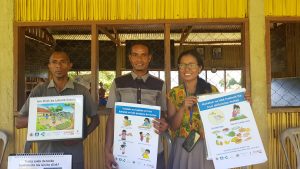 More than two decades on, Mary MacKillop Today continues to deliver and develop this program. In the past year, the Tetun Literacy Teacher Training has seen:
More than two decades on, Mary MacKillop Today continues to deliver and develop this program. In the past year, the Tetun Literacy Teacher Training has seen:
- Two hundred and six teachers from Manufahi, Viqueque, Dili and Ermera complete the program, meaning 3,170 children received quality education in the classroom and accessed high quality, inclusive resources.
- One hundred percent of teacher demonstrated high quality in the delivery of Tetun Literacy during monitoring
- Seventy four percent of teachers increased their knowledge on inclusive education
- Eight thousand eight hundred and eighty-seven educational resources distributed
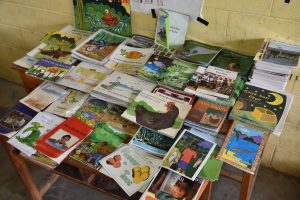
In recent months, the MMT team in Timor Leste have a marked another milestone with the Ministry of education launching two new books for schools focusing on disability. The books help to fill the inclusive education gap in the National Curriculum and the Ministry will print these for teachers across the country.
In launching the books, the Timor Leste Vice-Minister of Education, Youth and Sport noted the importance of these resources for children to understand the rights of people living with disability. Mary MacKillop Today is the first international organisation to produce inclusive education books to support children at the pre-school and primary level. He said, “Mary Mackillop is not only for Today, but Mary MacKillop is Today, Tomorrow and Forever.”
Alongside the Tetun Literacy are health literacy programs for teachers and communities, which have recently adapted to incorporate the very important COVID-19 preventative hygiene practices.
Mary MacKillop Today’s work continues to adapt and respond to the needs of vulnerable people far beyond Timor Leste to Papua New Guinea and Fiji and of course here in Australia. In Peru, the Sisters and partners working are currently enduring extraordinary hardship. Our support seems sometimes so slight in the face of the challenge but there is hope. Projects enhancing Women and youth leader’ participation in civil affairs in rural areas will adapt to allow program delivery in new and innovative ways and enrich local support in response to COVID impacts on women.
Working with the extraordinary MMT team with share a strong commitment to maintain the legacy of Mary, and the work of the Sisters of Saint Joseph, is a remarkable privilege. In these most difficult of times we continue, mindful of Mary’s guidance, to “Be eager in your desires but humbly patient in their accomplishment”.
Jane Woolford
CEO, Mary MacKillop Today
A Day in the Life: Mary MacKillop Today
Mary MacKillop Today.
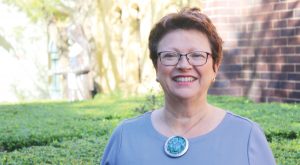
2020 has been an eventful year across the globe with everyone heavily impacted by the disruptions of COVID-19. The most vulnerable communities in Australia and around the globe are of course, feeling the greatest impact of the pandemic upon their lives.
In our work at Mary MacKillop Today we have been blessed with an ongoing commitment from supporters who still have the means to give generously. They recognise that these are the most important times to maintain programs and staff and partnerships formed and developed over years so that we may carry on necessary works now as well as bounce back on the other side.
Sadly, COVID-19 has had a disproportionate effect on women around the world. We can see this especially in terms of economic challenges and livelihoods. With lockdowns causing widespread job losses, women have been impacted the hardest, as people who are generally earning less, saving less, and holding insecure jobs, or living close to poverty.
Another devastating outcome of the pandemic has been the increase in domestic violence against women, with increased stress levels amongst families and the effect of social isolation measures. Many women and their children have little option but to stay in unsafe homes without the ability to leave.
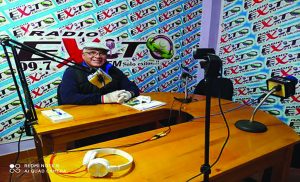 Peru, in particular, is suffering terribly. One of our programs, Enhancing Women’s Civil Participation Project, a joint initiative with our local partner CCAIJO, is working hard to address some of the greatest areas of need. CCAIJO’s special radio program called ‘Kuska Llank’aspa’, which means working together, has adapted by presenting programs on topics like Family Farming during Quarantine, Promoting Women’s Leadership in Compliance with Protocols at Home, while also raising awareness about family violence – including providing vital information on the resources available to deal with the effects of violence in the home. The radio program is an effective way of getting important messages to families while people are stuck and isolated in their homes and has been extended from one hour to three hours a week.
Peru, in particular, is suffering terribly. One of our programs, Enhancing Women’s Civil Participation Project, a joint initiative with our local partner CCAIJO, is working hard to address some of the greatest areas of need. CCAIJO’s special radio program called ‘Kuska Llank’aspa’, which means working together, has adapted by presenting programs on topics like Family Farming during Quarantine, Promoting Women’s Leadership in Compliance with Protocols at Home, while also raising awareness about family violence – including providing vital information on the resources available to deal with the effects of violence in the home. The radio program is an effective way of getting important messages to families while people are stuck and isolated in their homes and has been extended from one hour to three hours a week.
Daily we are reaching our program partners in Peru, Fiji and Papua New Guinea, to our staff in rural New South Wales and Timor-Leste – to ensure we adapt and find innovative ways to continue to serve those most vulnerable and in need.
So, as we seek to help women overcome enormous challenges right now, we find ourselves reflecting on one of our crucial guiding principles, ‘Women at the Heart: Inspired by a woman and led by the Sisters of Saint Joseph, women are central to our story and the communities we serve.’
We appreciate the importance of our women’s programs and of women telling their own story – particularly as we celebrate the 10th anniversary of Saint Mary MacKillop’s canonisation. Mary knew too well what it meant to break down barriers in the face of adversity.
There are many stories to share, which can be found on our website where Mary MacKillop Today is reaching women and working with them to bring about real change. Women like Silvia in Timor-Leste, who was able to join our Women’s Livelihoods program and achieve financial independence by setting up her own income-generating kiosk business.
Women here in Australia too will have more opportunities to achieve financial freedom opportunities towards financial freedom – especially those most vulnerable to economic hardship who are struggling to see a way out of debt.
Mary MacKillop Today will continue to provide hope and solidarity throughout this time of the pandemic.
Jane Woolford
CEO, Mary MacKillop Today
Julian Tenison Woods: A Life – Chapters 16th to 18th
September 7, 2020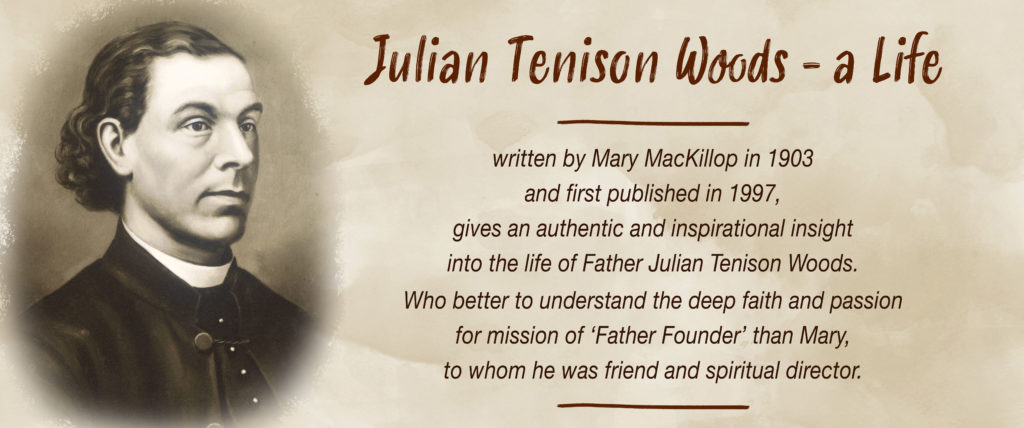
Chapters 16th, 17th and 18th
In addition to [Father Woods’] duties as Secretary to the Bishop, Director General of Catholic Education (a regular system of which he was expected to organise) and Inspector of Schools, he had to take charge of Port Adelaide, eight miles from the city, until another priest could be had. Dr Sheil was to go to Europe immediately after Easter, and the whole of the education arrangements were left to the new Director General…[i]
Father’s Day 2020
September 6, 2020The first Father’s Day was celebrated in the USA, Washington on 19 June 1910.
It soon became popular in North America and different parts of the World including Australia. It has been celebrated in different months of the year March, May, June and September in Australia. Father’s Day is a significant day as it provides families with an opportunity to express gratitude and appreciation to their Fathers.
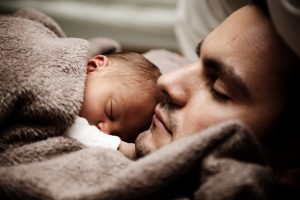
I am fortunate as I will be celebrating Father’s Day with my father and experiencing being a father for my two little children which has given me a different experience and perspective for my life. During my childhood, I used to look up to my father as a god-like figure who played a massive and crucial role in my life’s growth, development and achievements. I always try to follow his footsteps but was not able to express my feelings. During Father’s Day I used to wake up early in the morning to help my Mum to prepare breakfast for my father. I used to be able to afford less romantic handcraft gifts such as cards, handkerchief and help by such things as ironing all the clothes for the rest of the week. As I started my high school, I started buying consumer goods by borrowing my fathers’ money to buy his Father’s Day gifts.
Now, my children are also celebrating Father’s Day and I have been receiving handcrafted gifts for the last few years. When I see my children on Father’s Day trying to hide the gifts, they have for me, I feel joy and tremendous happiness. I think that the next chapter of my life has begun. I am trying to be a role model to my children and help in the development of their physical and mental health.
Sudeep Phuyal
Image: Sleeping Man and Baby obtained from Pexels. Used with permission.
JAG Partners with the House of Welcome
September 5, 2020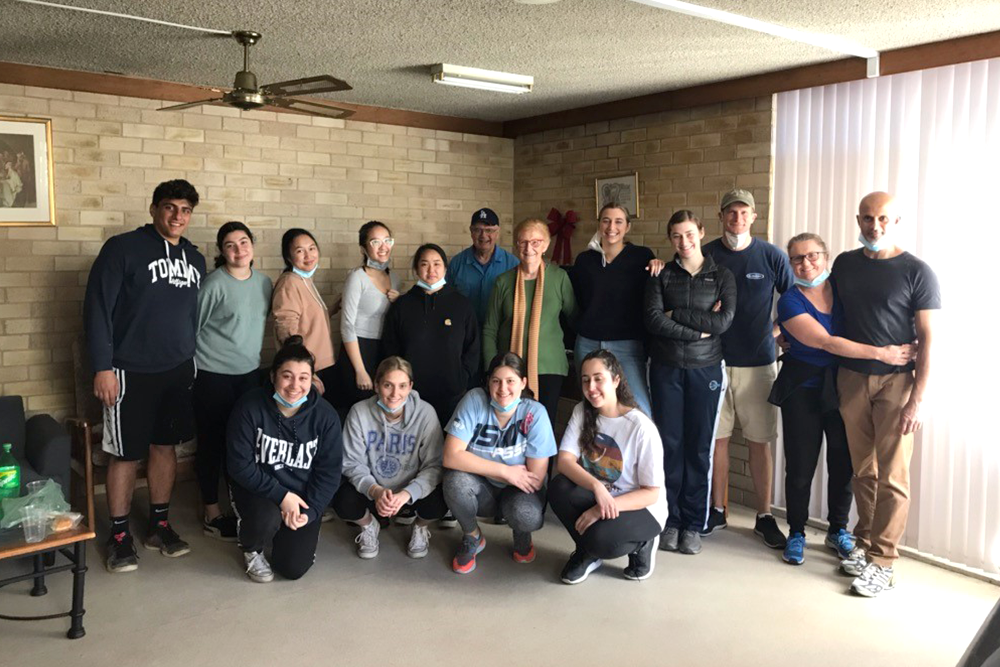
JAG (Josephite Action Group) volunteers have recently partnered with the House of Welcome to support asylum seeker families.
Sixteen generous young people (and a few more mature helpers!) responded to a request from the House of Welcome to help prepare a home for a group of young homeless refugee women.
Call on God’s Mercy
September 2, 2020Veronica Lawson* provides an ecological explanation of Isaiah 55:6-9.
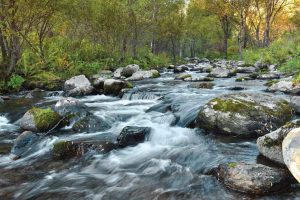 Ecological readers of Isaiah 55:6-9, the first reading for the 25th Sunday in Ordinary Time, will immediately notice that it is male-gendered and that it is concerned exclusively with divine-human relationships. The more-than-human is invoked only to demonstrate the gulf between God’s ways and thoughts on the one hand and flawed humanity’s ways and thoughts on the other. Earth becomes the negative counterpart to the heavens above.
Ecological readers of Isaiah 55:6-9, the first reading for the 25th Sunday in Ordinary Time, will immediately notice that it is male-gendered and that it is concerned exclusively with divine-human relationships. The more-than-human is invoked only to demonstrate the gulf between God’s ways and thoughts on the one hand and flawed humanity’s ways and thoughts on the other. Earth becomes the negative counterpart to the heavens above.
There is more to this reading, however, than first meets the ecological eye and it would be tragic indeed if we were to miss the force and even the wonder of this prophetic piece…
Continue reading the article below:
Tui Motu Issue 252, September 2020 (PDF)
*Veronica Lawson RSM is an eco-feminist biblical scholar and author of The Blessing of Mercy: Bible Perspectives and Ecological Challenges, 2016.
Image obtained from Tui Motu. Used with permission.
